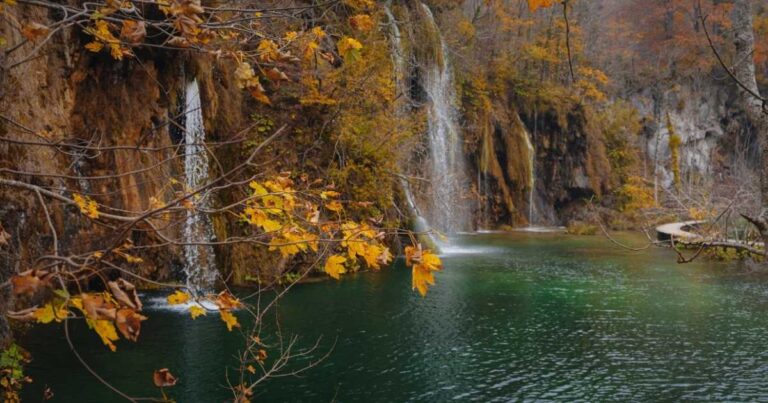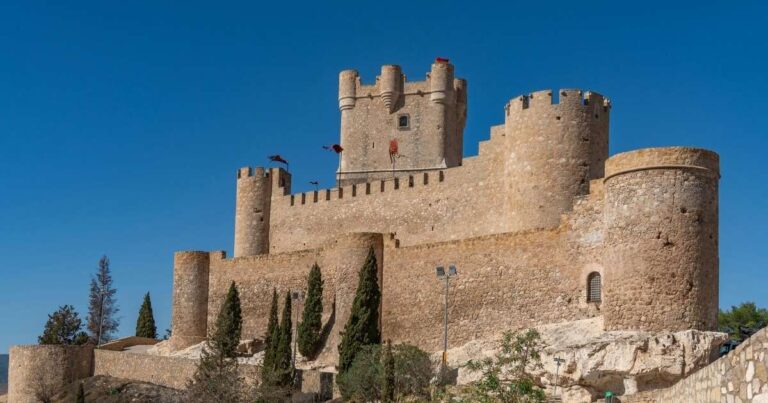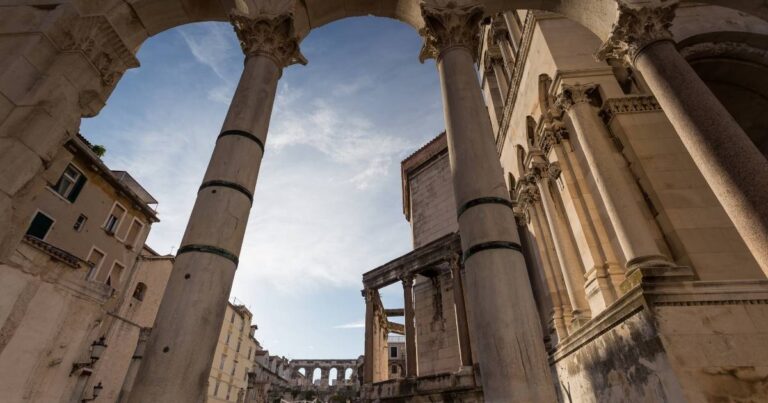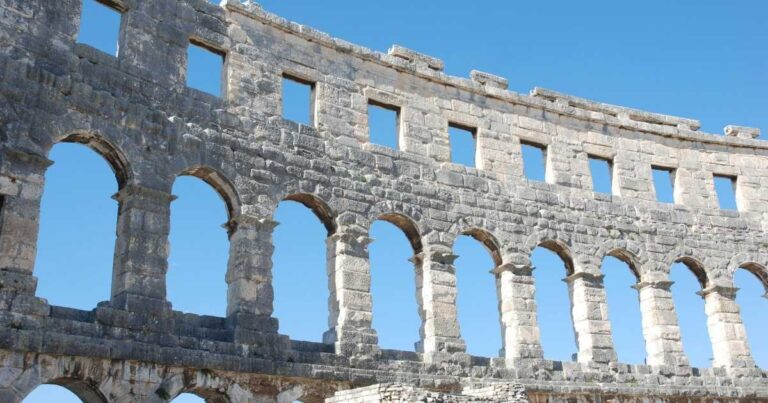Croatia, with its stunning Adriatic coastline, historic cities like Dubrovnik, and breathtaking natural wonders such as Plitvice Lakes National Park, is a dream destination for many. But as tourism grows, so does the importance of ensuring it’s sustainable. This article serves as your comprehensive guide to sustainable tourism in Croatia, offering practical tips and insights to help you explore this beautiful country responsibly. Let’s dive into how you can make your Croatian adventure eco-friendly and support local communities while minimizing your impact on the environment.
Understanding Sustainable Tourism in Croatia
What is Sustainable Tourism?
Sustainable tourism is about traveling in a way that minimizes negative impacts on the environment, supports local communities, and preserves cultural heritage. It encompasses environmentally sound practices, social responsibility, and economic viability. The goal is to ensure that tourism benefits both visitors and the host destinations for generations to come. When we talk about sustainable travel, we consider factors like carbon footprint, resource consumption, and the well-being of local populations.
The Importance of Sustainable Tourism in Croatia
Croatia’s natural beauty and cultural heritage are key attractions, but these are vulnerable to unsustainable tourism practices. Over-tourism can degrade ecosystems, strain local resources, and erode cultural identity. Sustainable tourism in Croatia is crucial to protecting its environment, supporting local economies, and maintaining the quality of life for Croatians. By embracing responsible tourism, we help preserve Croatia’s charm for future generations and ensure its long-term appeal as a top travel destination.
Current Trends in Sustainable Travel
Several trends are shaping the future of sustainable travel. Eco-conscious travelers are increasingly seeking authentic experiences. These experiences often involve:
- Minimizing their carbon footprint.
- Supporting local communities.
Sustainable accommodation options, like eco-lodges and family-run guesthouses, are gaining popularity. There’s also a growing interest in adventure travel activities such as kayaking and hiking, which allow visitors to connect with nature responsibly. Furthermore, responsible tourism includes respecting local customs and supporting Croatian businesses.
Planning a Trip to Croatia
Best Times to Visit Croatia for Eco-Tourism
The shoulder seasons – spring (April-May) and fall (September-October) – are ideal for eco-tourism in Croatia. During these months, the weather is pleasant, the crowds are smaller, and the impact on the environment is less severe. You’ll also find better deals on accommodation and travel, making your Croatia vacation more affordable and sustainable. Avoiding the peak summer months helps reduce strain on local resources and provides a more authentic travel experience.
Creating an Eco-Friendly Itinerary
When planning a trip to Croatia, prioritize eco-friendly activities and destinations. Include visits to national parks like Plitvice Lakes, where sustainable practices are in place. Opt for walking tours or bike rentals to explore cities like Zagreb and Dubrovnik, reducing your reliance on cars. Choose sustainable accommodation, such as hotels with eco-certifications or locally-owned guesthouses. An eco-friendly itinerary should also incorporate several important aspects:
- Opportunities to support local communities
- Learning about Croatian culture
Responsible Tourism Practices to Consider
Here are some responsible tourism practices to consider that can enhance your travel experience:
- Use public transportation or rent a car with good fuel economy to reduce your carbon footprint.
- Be mindful of your water and energy consumption, and always respect local customs and traditions.
Also, support local businesses by eating at family-run restaurants and buying souvenirs from local artisans. By adopting these sustainable practices, you can contribute to the well-being of Croatia and its people.
Accommodation Options for Eco-Conscious Travelers
Finding Sustainable Accommodation in Croatia
When planning a trip to Croatia, one of the most significant ways to practice sustainable tourism is by selecting sustainable accommodation. Look for hotels, guesthouses, or apartments that have implemented eco-friendly practices. Many establishments across Croatia are now embracing environmentally sound operations to lessen their impact on the environment, offering guests a chance to support local green initiatives while enjoying their Croatia vacation. Selecting sustainable accommodation ensures that your presence contributes positively to the local communities and minimizes your carbon footprint.
Eco-Friendly Hotels and Guesthouses
Croatia boasts a growing number of eco-friendly hotels and guesthouses committed to sustainable travel. These establishments often feature energy-efficient lighting, water conservation measures, and waste reduction programs. Some use solar power or other renewable energy sources to further decrease their carbon footprint. When researching places to stay, check for certifications like the EU Ecolabel or Green Key, which indicate a commitment to sustainable practices. Choosing eco-friendly options aligns your tourism in Croatia with your values.
Supporting the Local Economy through Responsible Choices
Opting for locally owned guesthouses and family-run hotels is an excellent way to support local economies during your travel in Croatia. These smaller establishments often have a more direct and positive impact on the environment and the surrounding local communities. Unlike large international chains, local businesses tend to reinvest their profits back into the community, helping to create jobs and stimulate economic growth. By choosing locally owned accommodation, you are directly contributing to the prosperity of Croatians.
Travel Tips for Sustainable Tourism
Transporting Sustainably within Croatia
Sustainable tourism in Croatia also encompasses how you move around the country. To minimize your carbon footprint, consider using public transportation such as buses and trains, especially when traveling between cities like Zagreb, Split and Dubrovnik. Within cities, walking or cycling are great ways to explore and reduce emissions. If you need a car, look into renting a car with good fuel efficiency or, even better, an electric or hybrid vehicle if available. Embracing sustainable transportation ensures your impact on the environment is minimal.
Engaging with Local Cultures and Communities
Immerse yourself in Croatian culture by engaging with local communities respectfully. Attend local festivals, visit farmers’ markets, and take part in traditional activities. When purchasing souvenirs, opt for locally made crafts to support local artisans. Be mindful of local customs and traditions, and always ask for permission before taking photos of people. By actively engaging with Croatian culture, you’ll not only enrich your travel experience but also contribute to the preservation of Croatia’s heritage and promote responsible travel.
Minimizing Your Environmental Impact
To minimize your impact on the environment while enjoying tourism in Croatia, several simple yet effective steps can be taken. Reduce waste by bringing a reusable water bottle and shopping bag. Avoid single-use plastics whenever possible. Be mindful of your water and energy consumption in hotels and accommodations. When visiting natural sites such as Plitvice Lakes National Park, stick to marked trails and respect wildlife. Properly dispose of waste and participate in cleanup efforts if possible. These sustainable practices collectively contribute to preserving Croatia’s natural beauty.
Activities to Enjoy While Traveling Sustainably
Eco-Friendly Outdoor Adventures
Croatia offers numerous opportunities for eco-friendly outdoor adventures, allowing you to immerse yourself in its stunning natural landscapes while minimizing your impact on the environment. Consider kayaking along the Adriatic coast or exploring the islands like Hvar, where you can discover hidden coves and pristine beaches. Hiking and biking trails abound, particularly in regions like Istria and around Plitvice Lakes National Park. These activities not only provide unforgettable experiences but also promote sustainable tourism in Croatia, making your Croatia vacation responsible and enriching, ensuring that you respect the local ecosystems and wildlife.
Participating in Local Conservation Efforts
Enhance your sustainable travel experience by actively participating in local conservation efforts. Look for opportunities to volunteer with organizations dedicated to preserving Croatia’s natural beauty. This could involve tree planting, beach cleanups, or assisting in wildlife monitoring programs. By contributing directly to conservation, you’ll gain a deeper understanding of the challenges facing Croatia’s ecosystems and contribute to their long-term health. This hands-on approach fosters a stronger connection with the local communities and reinforces the principles of responsible travel, ensuring that your tourism has a positive impact on the environment, making your itinerary meaningful.
Exploring Croatia’s Natural Wonders Responsibly
When visiting Croatia’s natural wonders, such as Plitvice Lakes National Park or the stunning coastline near Dubrovnik, it’s crucial to do so responsibly. Stick to marked trails, avoid disturbing wildlife, and properly dispose of any waste. Consider hiring a local guide who can provide insights into the area’s ecology and conservation efforts. Always respect the natural environment and follow any guidelines or regulations in place to protect it. By practicing sustainable tourism in these pristine locations, you help ensure that future generations can also enjoy their beauty. Plan a day trip ensuring zero impact on the environment while you visit Croatia.
Conclusion and Final Thoughts
Recap of Key Sustainable Travel Tips
As you plan a trip to Croatia, remember the key elements of sustainable tourism. Choose sustainable accommodation, such as eco-friendly hotels or guesthouses, to minimize your carbon footprint. Utilize public transportation or rent a car with good fuel economy to explore the country. Engage with local communities respectfully, support local businesses, and participate in conservation efforts. Reduce waste, conserve resources, and always respect the environment and Croatian culture. By integrating these sustainable practices into your itinerary, you contribute to a more environmentally responsible and culturally enriching Croatia vacation.
Moving Forward: Your Role in Sustainable Tourism
Your choices as a traveler can have a significant impact on the environment and the well-being of local communities. By embracing sustainable travel practices, you become an advocate for responsible tourism in Croatia and beyond. Share your experiences and encourage others to adopt eco-friendly behaviors. Support organizations that promote sustainable tourism and advocate for policies that protect natural and cultural heritage. Remember, sustainable tourism in Croatia is a shared responsibility, and every action, no matter how small, contributes to a more sustainable future, leaving a positive footprint while you travel in Croatia.
FAQs about Sustainable Tourism in Croatia
What are the best eco-friendly activities in Croatia?
Sustainable tourism in Croatia offers many eco-friendly activities. Consider kayaking along the Adriatic coast, exploring islands like Hvar, or hiking in Istria. Visit Croatia’s national parks like Plitvice Lakes National Park responsibly, sticking to marked trails to respect the environment. You might enjoy adventure travel, such as cycling through vineyards or participating in guided nature walks, all while minimizing your impact on the environment and supporting local communities and promoting responsible tourism.
How can I travel sustainably in Croatian cities?
To ensure sustainable travel within Croatian cities like Zagreb and Dubrovnik, opt for public transportation. Use trams, buses, or trains. Walking and cycling are excellent ways to explore while reducing your carbon footprint. When planning a trip to Croatia, choose centrally located accommodation to minimize the need for transportation. Support local businesses by eating at local restaurants and shopping at local markets to enhance the sustainability of your tourism.
What should I look for in sustainable accommodations?
When choosing sustainable accommodation in Croatia, seek out establishments with eco-friendly certifications. Look for hotels and guesthouses that implement water conservation measures, use energy-efficient lighting, and have waste reduction programs. Inquire about their commitment to sustainable practices, such as using renewable energy sources or sourcing food locally. Check for certifications such as Green Key. Supporting local communities by opting for locally-owned guesthouses can also minimize your footprint.
How does sustainable tourism benefit local communities?
Sustainable tourism directly benefits local communities by creating economic opportunities. When tourists support local businesses, such as restaurants and artisans, they contribute to the economic well-being of the community. Responsible tourism also encourages the preservation of cultural heritage and traditions, ensuring that Croatians can maintain their unique identity. By engaging respectfully with local communities and promoting sustainable tourism in Croatia, travelers foster a positive relationship that benefits everyone and promotes responsible travel.
Are there any resources for planning an eco-friendly trip to Croatia?
When planning a trip to Croatia and seeking sustainable and eco-friendly resources, several websites and organizations can assist. Check the official tourism board websites for Croatia for listings of eco-friendly accommodation and tour operators. Look for certifications and labels that indicate a commitment to sustainable practices. Consult travel blogs and forums dedicated to sustainable travel. They often offer valuable tips and recommendations from experienced travelers dedicated to responsible travel.







